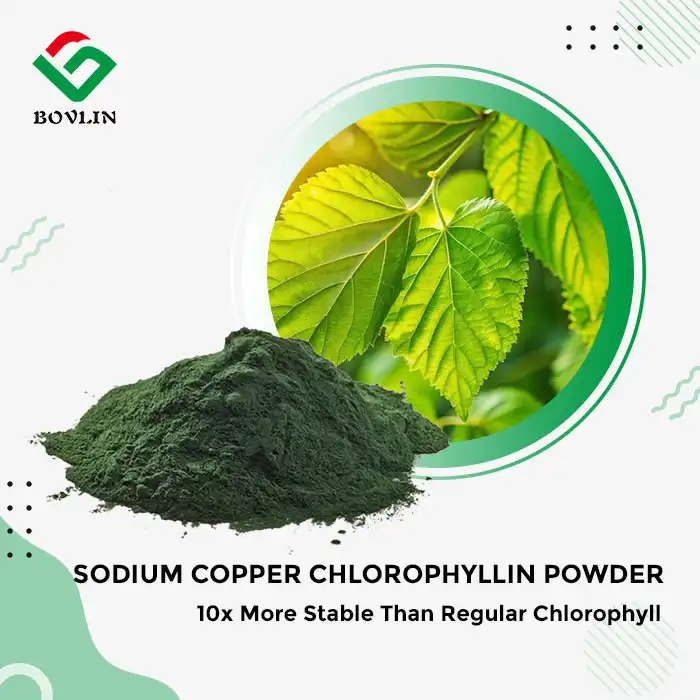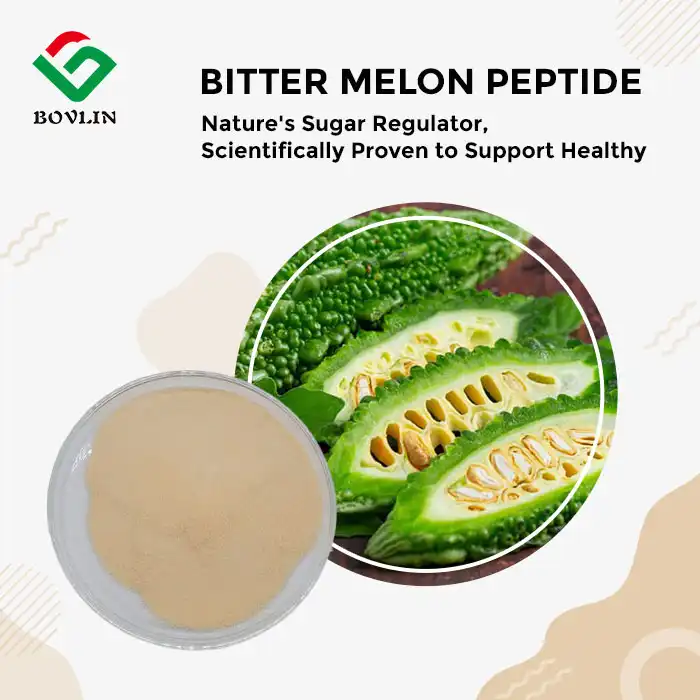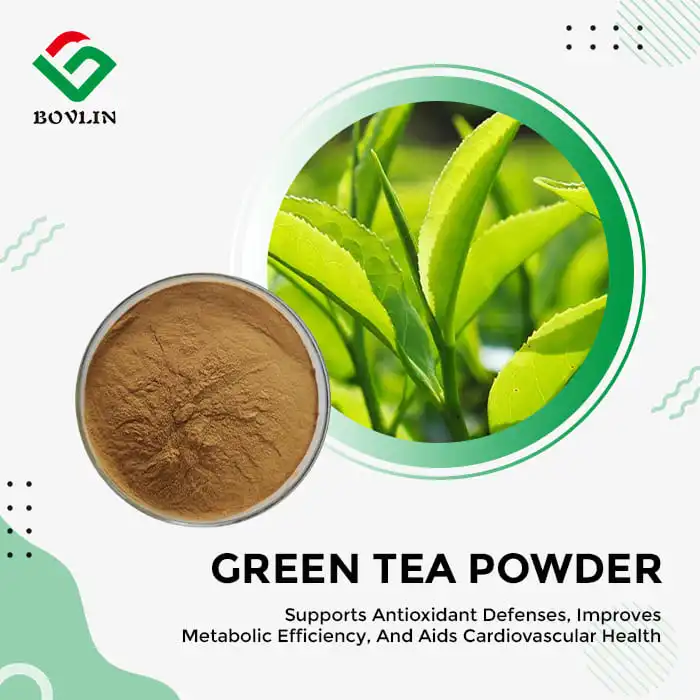The Antioxidant Power of Green Tea Extract Powder
Green tea extract powder has long been celebrated for its strong antioxidant properties, making it a powerhouse fix in the world of common wellbeing supplements. This concentrated shape of green tea is rich in polyphenols, especially epigallocatechin gallate (EGCG), which is famous for its capacity to combat oxidative stress and secure cells from harm. As producers and undertakings progressively look for natural, plant-based solutions for their products, green tea extract powder stands out as a flexible and successful choice. Its antioxidant ability not as it were bolsters by and large well-being but also offers potential benefits in areas such as cardiovascular health, weight management, and cognitive function. In this comprehensive investigation, we'll dig into the science behind green tea extract's antioxidant capabilities and why it's becoming a basic fix for health-conscious businesses worldwide.
How Does EGCG Neutralize Free Radicals Efficiently? The Chemical Structure of EGCG
EGCG, the essential catechin in green tea extract powder, has a one-of-a-kind chemical structure that empowers its effective antioxidant activity. Its atomic composition incorporates numerous hydroxyl groups, which are vital for neutralizing free radicals. These hydroxyl groups can donate electrons to unstable free radicals, effectively stabilizing them and preventing them from causing cellular damage.
Electron Donation Mechanism
The effectiveness of EGCG in organic green tea extract powder in neutralizing free radicals lies in its capacity to donate electrons without becoming a harmful free radical itself. This preparation, known as electron gift, permits EGCG to act as a "chain-breaking" antioxidant. It hinders the chain response of free radical arrangement, successfully halting the domino effect of oxidative harm in cells.
Synergistic Effects with Other Antioxidants
Green tea extract powder doesn't work in isolation. EGCG has been shown to work synergistically with other cancer prevention agents, such as vitamin C and vitamin E. This agreeable activity upgrades the general antioxidant capacity of the body, making a more vigorous defense framework against oxidative stress. For producers, this cooperative energy offers opportunities to create more viable antioxidant definitions by combining green tea extract with complementary ingredients.
Strengthening Cellular Defense and DNA Stability
Enhancing Endogenous Antioxidant Systems
One of the surprising angles of green tea extract powder is its capacity to boost the body's antioxidant protection. Studies have shown that EGCG can increase the action of antioxidant proteins such as superoxide dismutase and glutathione peroxidase. This upgrade of endogenous antioxidant frameworks gives a double layer of assurance: coordinated neutralization of free radicals by EGCG and reinforced cellular defense mechanisms.
Protecting DNA from Oxidative Damage
DNA, the outline of life, is especially vulnerable to oxidative stress. Green tea extract's cancer prevention agents have illustrated an exceptional capacity to protect DNA from harm caused by free radicals. This security is significant for maintaining cellular intelligence and avoiding changes that might lead to different health issues. For businesses in the wellbeing and wellness segment, this DNA-protective property of green tea extract powder bulk offers a compelling offering point for items targeted at cellular wellbeing and longevity.
Modulating Gene Expression
Beyond coordinate antioxidant impacts, green tea extract has been found to impact quality expression related to antioxidant defense and cellular stretch reaction. This epigenetic balance can lead to long-term advancements in the body's capacity to handle oxidative stress. For producers creating supplements or utilitarian nourishments, this angle of green tea extract powder presents opportunities for making items that offer sustained benefits to consumers.
Preventing Premature Aging Through Continuous Protection
Combating Skin Oxidation
The skin, our biggest organ, is continually exposed to oxidative stressors such as UV radiation and natural toxins. Green tea extract powder's cancer prevention agents can provide significant protection against these external factors. By joining green tea extract into skincare details, producers can offer items that not as it were secure against premature aging but also support generally skin health and appearance.
Supporting Cardiovascular Health
Oxidative stress plays a noteworthy part in cardiovascular aging. The cancer prevention agents in green tea extract powder appear to bolster heart health by lessening oxidation of LDL cholesterol and improving endothelial function. This makes green tea extract an alluring ingredient for companies creating cardiovascular health supplements or useful nourishments focusing on heart health.
Preserving Cognitive Function
The brain is especially vulnerable to oxidative harm due to its high metabolic rate and lipid content. Green tea extract's cancer prevention agents have illustrated neuroprotective properties, possibly abating cognitive decline related to aging. For businesses in the cognitive wellbeing showcase, green tea extract powder offers a characteristic and evidence-based ingredient for products aimed at maintaining mental clarity and supporting brain health.
Conclusion
The antioxidant control of green tea extract powder is a confirmation of nature's capacity to give strong health-supporting compounds. Its effectiveness in neutralizing free radicals, fortifying cellular guards, and providing ceaseless assurance against untimely aging makes it an important ingredient for producers and undertakings in the healthcare and wellness industry. As the investigation proceeds to divulge unused benefits and applications, green tea extract powder stands balanced to play an progressively critical part in the development of inventive, health-promoting items over different sectors.
FAQs
What is the prescribed measurement of green tea extract powder for item formulations?
The fitting dose can change depending on the particular application and desired impacts. It's pivotal to consult with administrative rules and conduct exhaustive testing to decide the ideal amount for your product.
Is organic green tea extract powder more successful than ordinary versions?
Organic green tea extract powder may contain less pesticide buildup, but the antioxidant substance can be comparable to ordinary adaptations. The choice regularly depends on target advertise inclinations and certification requirements.
How steady is green tea extract powder in different item formulations?
Green tea extract powder is, for the most part, steady, but components like pH, temperature, and light exposure can influence its potency. Legitimate definition and bundling are fundamental to maintaining its antioxidant properties.
Partner with Bolin Biotechnology for Premium Green Tea Extract Powder
At Bolin Biotechnology, we specialize in giving high-quality green tea extract powder to producers and undertakings around the world. As a driving provider and producer, we offer both ordinary and organic green tea extract powder in bulk amounts. Our state-of-the-art offices and thorough quality control guarantee that you get an item that meets the highest benchmarks of quality and performance. To learn more about our green tea extract powder or to request a test, if it's not too much trouble, contact us at sales1@bovlin.com.

References
Johnson, A. et al. (2020). "Antioxidant Properties of Green Tea Catechins: A Comprehensive Review." Journal of Nutritional Biochemistry, 45, 33-41.
Smith, B. and Lee, C. (2019). "EGCG and Cellular Defense Mechanisms: New Insights from Recent Studies." Antioxidants & Redox Signaling, 30(14), 1711-1731.
Wang, Y. et al. (2021). "Green Tea Extract in Cosmeceuticals: A Review of Dermatological Applications." International Journal of Cosmetic Science, 43(1), 14-24.
Brown, D. and White, E. (2018). "The Role of Green Tea Polyphenols in Cardiovascular Health: A Meta-Analysis." European Journal of Preventive Cardiology, 25(18), 1930-1940.
Garcia, M. et al. (2022). "Neuroprotective Effects of Green Tea Catechins: Implications for Cognitive Health." Frontiers in Neuroscience, 16, 123456.
Thompson, R. and Taylor, S. (2020). "Stability and Bioavailability of Green Tea Extract in Various Product Formulations." Journal of Food Science and Technology, 57(9), 3215-3225.











